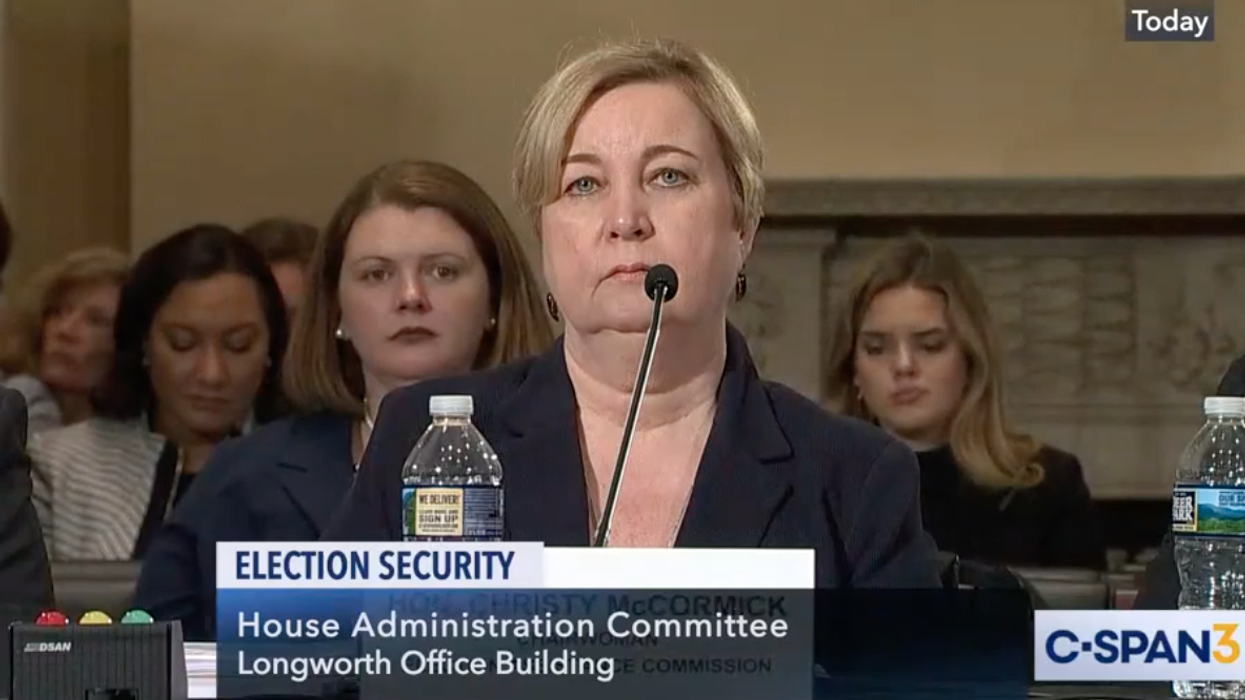The chairwoman of the Election Assistance Commission told the nation's state legislators last week that she's opposed to automatic voter registration.
Adding qualified citizens to the rolls whenever they do business with a state agency, unless they choose to opt out, has quickly become a widely accepted component of most democracy reform agendas. Eighteen states will have so-called AVR in place in time for the 2020 election after a surge of acceptance in state legislatures this decade. And the practice would be nationally mandated under HR 1, the comprehensive campaign finance, election and ethics legislation the House passed in March.
But Christy McCormick argues that registering to vote is a form of speech protected by the First Amendment and that "not registering to vote is a choice – we should respect our citizens' choices."
Rick Hasen, a law professor at the University of California Irvine, published an item about the presentation on his election law blog, saying that the presentation "raised some eyebrows" at the gathering in Nashville of the National Conference of State Legislatures.
The EAC is an advisory commission, created after the disputed 2000 election to help states improve their elections – most recently by distributing money approved by Congress for buying new voting equipment and otherwise enhancing election security.
So McCormack, a Republican who has been chairwoman for four years and was previously a top trial attorney in the voting section of the Justice Department's civil rights division, has no power to shape voter registration policy. Nonetheless, opposition to AVR from one of the top election policy officials in the federal government is notable.
In her presentation to the legislators, McCormack cited a Supreme Court case decided last year, involving a public sector employee who did not join the union because he disagreed with its political positions but was still required to pay dues. The court ruled against the union, saying requiring non-members to pay was forced speech and therefore a violation of the First Amendment.
McCormick also said that automatic voter registration does not necessarily increase turnout and that it would expose more people's voter information to be hacked. "A voter's information belongs to the voter and only to the voter, and he or she – we — should decide how we want our private information to be shared," slides for her presentation said.
In January 2017, McCormick said she did not believe claims of Russian meddling in the 2016 campaign, calling it "deceptive propaganda perpetrated on the American public."
But in an op-ed column in March, McCormick acknowledged that "in the wake of the 2016 presidential election, intelligence officials began to piece together evidence of Russian election interference."
Earlier this year, she and other commissioners pleaded for more money from Congress to help improve security for upcoming elections because of concerns over hacking.
In a statement Wednesday, McCormick said she was "specifically asked by NCSL to provide a counterpoint and share some of the challenges to implementing automatic voter registration." McCormick said she favors so-called automated registration, which often occurs at motor vehicle bureaus, in which people renewing drivers' licenses are invited to register.
"Voters should give prior consent to registering to vote for a variety of reasons, including, but not limited to, indicating political affiliation, choosing to register in a different state, or declining to register based on religious objection," she said.




















Trump & Hegseth gave Mark Kelly a huge 2028 gift